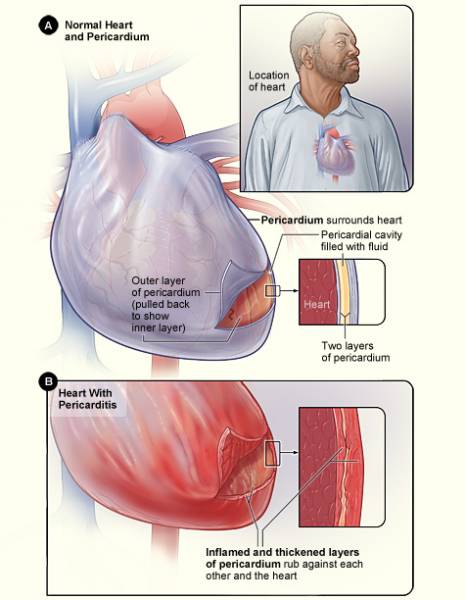Pericarditis
Pericarditis refers to inflammation of the pericardium (the thin membrane which lines the heart). In most cases, this inflammation is self-limiting and resolves over a few weeks. However, in some people, pericarditis may become complicated by the development of a pericardial effusion (accumulation of fluid within the pericardial sac).
Patients with pericarditis most commonly complain of chest pain. This pain is usually sharp in nature, and made worse by taking in a deep breath or leaning forward.
What Can Cause Pericarditis?
 Pericarditis is usually a complication of viral infections, such as the echovirus or coxsackie virus. The influenza virus has also been known to rarely cause pericarditis.
Pericarditis is usually a complication of viral infections, such as the echovirus or coxsackie virus. The influenza virus has also been known to rarely cause pericarditis.
Bacterial and fungal infections can also cause pericarditis.
Pericarditis may also be associated with the following:
• autoimmune diseases
• hypothyroidism
• renal failure
• tuberculosis and HIV infection
• certain cancers
• after a heart attack (known as post-myocardial infarct pericarditis)
• myocarditis
• as a complication of radiation therapy to the chest
• injury to the chest wall
Image by: National Heart Lung and Blood Institute (NIH) (National Heart Lung and Blood Institute (NIH)) [Public domain], via Wikimedia Commons
Further Reading
The article above is meant to provide general information and does not replace a doctor's consultation.
Please see your doctor for professional advice.
